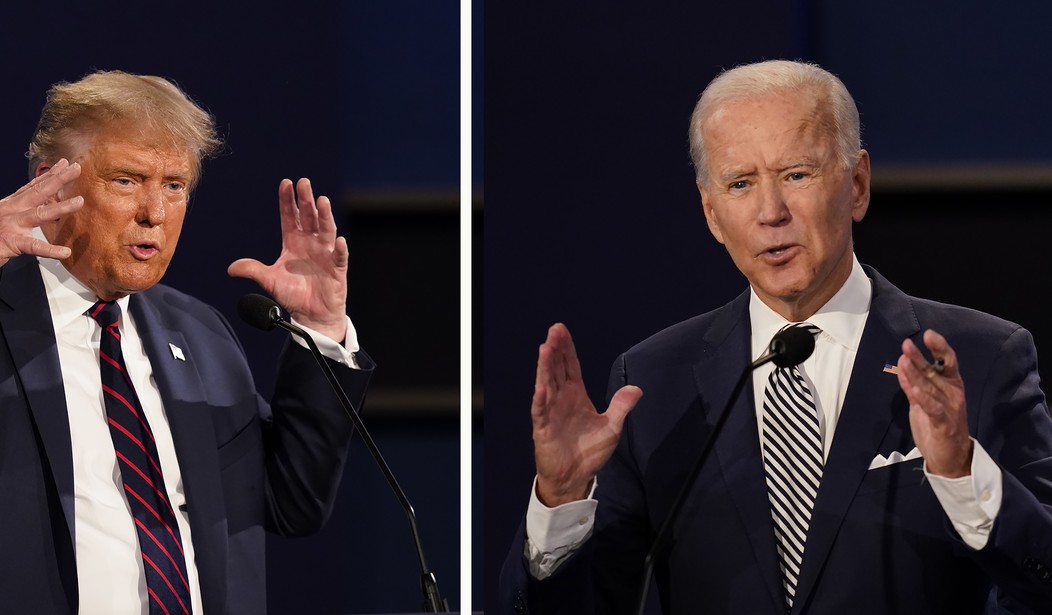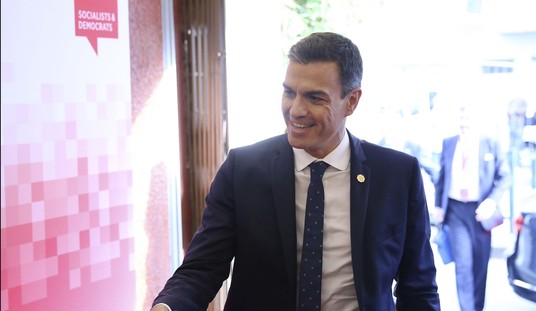What if you held a debate and nobody showed up? That’s a question that the Commission on Presidential Debates may be wrestling with after announcing the dates and locations for three general election debates next fall. There wasn’t anything unusual or controversial about the dates or the universities that volunteered to hold them. The only potential problem is that neither the DNC nor the RNC have spoken up and agreed to participate. There is still plenty of time, of course, and both committees probably want to check with Biden and the potential Republican candidates first. But something that has long been assumed to be a normal part of the presidential election cycle might not be as much of a sure thing in these less than “normal” times. (Associated Press)
Three debates for next year’s presidential general election are set to be held in college towns in Texas, Virginia and Utah between Sept. 16 and Oct. 9 — though it remains to be seen whether either party’s candidate will actually participate.
The nonpartisan Commission on Presidential Debates announced Monday that presidential candidates will first be scheduled to meet Sept. 16 at Texas State University in San Marcos, south of Austin. The vice presidential debate is scheduled nine days later at Lafayette College in Easton, Pennsylvania.
Presidential debates planned for Virginia State University in Petersburg on Oct. 1, and the University of Utah in Salt Lake City on Oct. 9, round out the schedule, less than a month before Election Day on Nov. 5.
As I said, this is hardly a sure thing at this point. Both parties have been unhappy with the CPD since the 2020 elections. The RNC felt that the moderators they selected were heavily biased against Trump while the DNC felt the moderators didn’t do enough to “rein in” Trump when he went on the attack against Biden. The RNC has already floated the idea of making all of the candidates sign a pledge not to participate in any CPD-sponsored debates, though they haven’t pulled the trigger on that proposal yet.
Then there are the candidates themselves. Assuming Joe Biden makes it through the convention next summer and remains the candidate, why would his people want to put him on national television for a lengthy debate, particularly if he’s running against Trump again? Particularly in the evenings, Biden is inarticulate on the best of days and appears completely cognitively broken on others. Trump may get someone’s name wrong every once in a while, but for the most part, he stands up to questioning for hours and hammers home his message. The other, younger candidates still in the running could equally well outperform Biden.
As for Trump, he claims that he’s very much looking forward to debating Biden. He told Bret Baier as much during an interview earlier this year. But that too could change. He’s already demonstrated his willingness to opt out of debates when he believes he’s already the solid frontrunner and would have nothing to gain from them. If the polls keep slipping in their current direction and Trump opens up a solid lead over Biden, he might just take a pass. None of the other candidates have mentioned a reluctance to debate Biden, however.
In the end, the CPD has no power to force anyone onto the debate stage. It’s not a constitutional or legal requirement and the Commission is an independent group with no official authority in either party. If neither candidate shows up, there’s really nothing they can do about it. And if only one candidate shows up, it would look like a rather pointless endeavor. Of course, all of this could blow over in the months to come and a path toward having normal debates might be carved out. But it’s not a sure bet at the moment by any means.








Join the conversation as a VIP Member